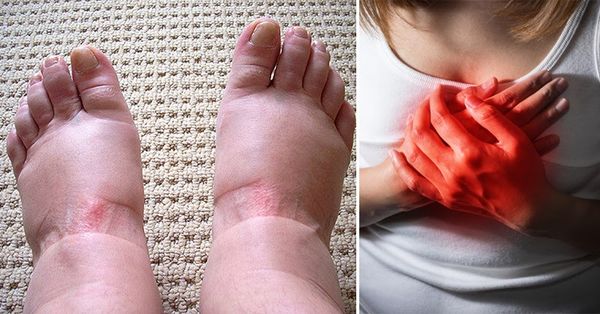Swollen feet are commonly associated with pregnancy, injury, or standing for long hours. However, it’s important to understand that swollen feet can be caused by many other factors. While most cases of swelling can be resolved with rest or soaking in ice water, sudden and unexplained swelling may indicate an underlying health issue that requires medical attention.
Causes of Swollen Feet
Deep Vein Thrombosis (DVT)
Deep vein thrombosis occurs when a blood clot forms in the deep veins of the body, typically in the legs. This condition can cause swelling, heaviness, and clearer veins in the legs. If left untreated, DVT can lead to a pulmonary embolism, which is a blockage of blood flow to the lungs.
Achilles Tendonitis
Achilles tendonitis is a condition that causes pain and difficulty moving. Swelling in the ankles and heels, especially after exercise or physical activity, is a common symptom.
Osteoarthritis
Osteoarthritis is the most common type of arthritis, and when it affects the feet, it can cause pain, soreness, stiffness, and swelling. Engaging in activities like yoga can help alleviate the pain associated with osteoarthritis.
Heart Failure
Swollen feet can be a subtle sign of heart failure. When the heart is not functioning properly, fluid builds up in the body, leading to edema and swelling in the legs, feet, or ankles.
Lymphedema
Lymphedema occurs when excess lymphatic fluid builds up in the arm or leg, causing it to become swollen. If you experience rapid swelling or severe pain, it’s important to seek medical attention right away.
Cellulitis
Cellulitis is a condition that usually occurs when there is poor blood flow in the lymphatic system. It commonly affects the legs below the knee, causing the skin to become swollen and hot to the touch.
Gout
Gout is a type of arthritis caused by an excess amount of uric acid in the body. It often manifests with severe pain, especially in the big toe’s inner joints, which can become swollen, red, and tender.
Bursitis
Bursitis is a problem that affects the small fluid-filled bags that protect bones, muscles, and tendons. While it commonly occurs in the shoulders, hips, and elbows, it can also affect the knees, heels, and big toes. Foot bursitis may cause pain, stiffness, redness, and swelling.
Rheumatoid Arthritis
Rheumatoid arthritis can affect each person differently, but swollen, painful joints and severe swelling are common symptoms. Additionally, nodules under the skin caused by the disease can lead to swelling of tendons and muscles.
If you believe your feet are swollen and it may indicate a health issue, it is crucial to consult a medical professional for a proper evaluation and diagnosis. Your health should always be a priority. Share this valuable information with your friends and family to raise awareness about the importance of recognizing these warning signs.
Let us know your thoughts about this article in the comment section below.





